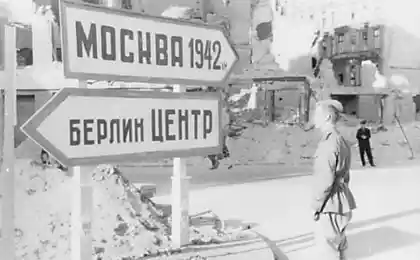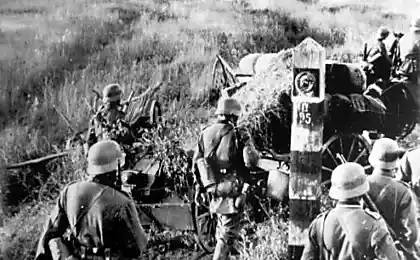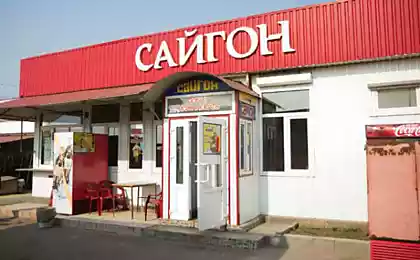212
What the Soviet hostess reveled in sudden guests and how they could set the table literally from nothing
A sudden guest is a double joy. That's what all my friends think, and I agree with them. There is no reason not to support them, because there is always something in the house to treat unexpected visitors. Just look in the refrigerator or storage room – the table is already set. In particularly critical cases, when the refrigerator “mouse hanged”, you can go down to the supermarket. Then you do not have to strain at the stove, and the guests will be fed and satisfied.

Recently, no one goes to visit without warning, and in the years of my parents’ youth, a sudden guest was a common thing. Since smartphones were not yet invented, and landline phones were not all, relatives or friends often came without a personal invitation. Hospitable hosts needed to be ready for their meeting, and under the Union it was not easy.
Do you want to know how my parents prepared in advance for the unexpected? I'll tell you.

In the bread always lay bread or a loaf. They were bought regularly because they ate almost all the dishes with bread. In a secluded place, waiting for guests, there were glass jars with various home pours. Although few came empty-handed, the “strategic reserve” gradually faded.
There were no seasonal vegetables in the house. And in summer and autumn, the shelves in the basement were filled with home preservation. Mom marinated, kvassil or salted vegetables and mushrooms, cooked jam and preserved for the winter compotes from fruits and berries. There was also a supply of potatoes, table beets, onions and carrots.

There were frozen dumplings in the freezer. Mother and grandmother sculpted them for the future, in order to quickly feed the family if necessary. Sometimes dumplings were given to friends.
Salo is a very popular product. It was always available in the kitchen in fresh, salty or boiled form.
There were chicken eggs in the tray. As a rule, there were at least a dozen of them, because the reserves were constantly replenished. In the pantry, in the corner, you could see a jar of sprats, green peas or condensed. But such scarce products for the usual feast were not intended, because they were kept for the holiday.

For the guests were hidden tea, coffee, candy or cookies. And we often had homemade pastries. Sudden guests usually only came for tea. But where did you see it all end with tea? Potatoes were put on the stove, and someone from the household was sent to the store for a herring or tulle. Immediately fried eggs, and boiled eggs were put on a sandwich along with a piece of cucumber or tomato. For sandwiches used a bar or roasted toast.
In summer, fresh vegetables were crushed for salad, and in winter pickled cucumbers with tomatoes were opened and sauerkraut was extracted. The lard was taken out of the fridge. To make a good snack, it was enough to cut it and put it on a plate next to black bread and green onions.

Even then, there was a chain of shops called “Cooking”. If you needed to urgently meet guests, there you could buy ready-made vegetables for vinaigrette or delicious cakes for tea for a penny. Very helpful busy housewives "Home Kitchen", however, it was only in large cities. The dishes cooked in these shops were no different from the home ones. The townspeople visited there with their dishes and bought borscht or soup, roast, patties and so on.
The feasts were not as rich and refined as they are today, but the atmosphere at the table was much warmer and kinder-natured. There was less jealousy and boasting between people. All ordinary citizens in the USSR lived equally poor, but unexpected guests were welcomed with joy.

Sudden guest, unexpected, unplanned, unexpected, accidental - so called the unexpected visitor in the Soviet Union. We also speak of him in such words, although in the old days such a person was called uninvited, unexpected or uninvited. An uninvited guest, as they say, is worse than a Tatar. This was because hospitality required certain material costs, which impoverished people did not always have.
Would you risk going to a visit today without an invitation?

Recently, no one goes to visit without warning, and in the years of my parents’ youth, a sudden guest was a common thing. Since smartphones were not yet invented, and landline phones were not all, relatives or friends often came without a personal invitation. Hospitable hosts needed to be ready for their meeting, and under the Union it was not easy.
Do you want to know how my parents prepared in advance for the unexpected? I'll tell you.

In the bread always lay bread or a loaf. They were bought regularly because they ate almost all the dishes with bread. In a secluded place, waiting for guests, there were glass jars with various home pours. Although few came empty-handed, the “strategic reserve” gradually faded.
There were no seasonal vegetables in the house. And in summer and autumn, the shelves in the basement were filled with home preservation. Mom marinated, kvassil or salted vegetables and mushrooms, cooked jam and preserved for the winter compotes from fruits and berries. There was also a supply of potatoes, table beets, onions and carrots.

There were frozen dumplings in the freezer. Mother and grandmother sculpted them for the future, in order to quickly feed the family if necessary. Sometimes dumplings were given to friends.
Salo is a very popular product. It was always available in the kitchen in fresh, salty or boiled form.
There were chicken eggs in the tray. As a rule, there were at least a dozen of them, because the reserves were constantly replenished. In the pantry, in the corner, you could see a jar of sprats, green peas or condensed. But such scarce products for the usual feast were not intended, because they were kept for the holiday.

For the guests were hidden tea, coffee, candy or cookies. And we often had homemade pastries. Sudden guests usually only came for tea. But where did you see it all end with tea? Potatoes were put on the stove, and someone from the household was sent to the store for a herring or tulle. Immediately fried eggs, and boiled eggs were put on a sandwich along with a piece of cucumber or tomato. For sandwiches used a bar or roasted toast.
In summer, fresh vegetables were crushed for salad, and in winter pickled cucumbers with tomatoes were opened and sauerkraut was extracted. The lard was taken out of the fridge. To make a good snack, it was enough to cut it and put it on a plate next to black bread and green onions.

Even then, there was a chain of shops called “Cooking”. If you needed to urgently meet guests, there you could buy ready-made vegetables for vinaigrette or delicious cakes for tea for a penny. Very helpful busy housewives "Home Kitchen", however, it was only in large cities. The dishes cooked in these shops were no different from the home ones. The townspeople visited there with their dishes and bought borscht or soup, roast, patties and so on.
The feasts were not as rich and refined as they are today, but the atmosphere at the table was much warmer and kinder-natured. There was less jealousy and boasting between people. All ordinary citizens in the USSR lived equally poor, but unexpected guests were welcomed with joy.

Sudden guest, unexpected, unplanned, unexpected, accidental - so called the unexpected visitor in the Soviet Union. We also speak of him in such words, although in the old days such a person was called uninvited, unexpected or uninvited. An uninvited guest, as they say, is worse than a Tatar. This was because hospitality required certain material costs, which impoverished people did not always have.
Would you risk going to a visit today without an invitation?
Why the movie “Little Faith” causes unpleasant feelings and do not want to watch it more than once
At the moment when Alexander Usyk responsibly prepared for the fight with Fury, a happy event occurred in his family.























